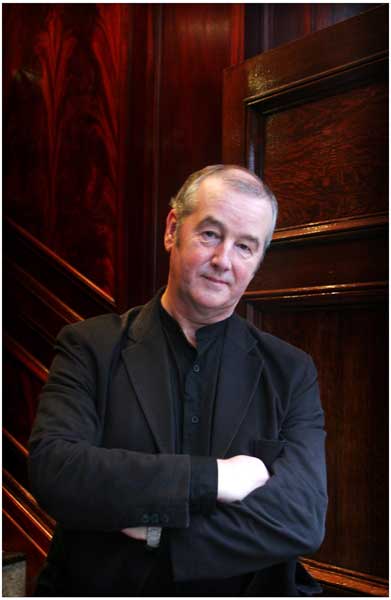Passed/Failed: An education in the life of David Almond, the award -winning children's author, screenwriter, and playwright
'My teacher said I'd never be a writer'

David Almond, 58, won the Whitbread Children's prize and the Carnegie award with his novel Skellig, which he has adapted as a radio play, a television film, a DVD, an opera and a play opening at the Bloomsbury Theatre in London on 15 December. He won the Whitbread award again with The Fire-Eaters. The Savage and Jackdaw Summer came out last year.
There were rumours of ghosts and spirits roaming St John the Baptist Catholic primary in Felling-on-Tyne, Newcastle, a dark-seeming place built of stone. The toilets always seemed very sinister but some of the teachers were the opposite. I remember a very kind teacher, Miss McShane, giving me a book as a prize and I remember the feel of the book in my hand.
I was quite happy there. I don't remember it but people say I was creative with Plasticine; in my books I write a lot about making things in clay. I remember children being caned for not learning the catechism, the list of questions and answers that is part of being a Catholic. I got caned for dropping my pencil.
I was there until I was nine, when my parents sent me to a private Catholic prep school to make sure I passed the 11-plus. St Aidan's was a Christian Brothers' school; it has a bad reputation but I liked it a lot. The teaching was incredibly formal. You learned dates by heart and how you should address a Duchess and what the wife of a baron is called... this was for kids from Tyneside!
I passed the 11-plus and went to St Joseph's in Hebburn, the first co-educational Catholic grammar in the North-East. For the first couple of years I was happy but then things went downhill; I found the atmosphere unsympathetic. It was very regimented with a lot of corporal punishment – for girls, too. One of the first things I saw was a teacher going down a line of children, who were queuing for lunch, with a strap to keep them in order.
My father died during the year of my O-levels and I didn't remember any of the teachers saying anything to me about that. I was seen as a massive failure but got all the O-levels I took. I did okay at my A-levels, which were English, French and history. I saw myself as a writer and was reading a lot at home. English A-level was done in a very dry way – but one day the teacher came in and read TS Eliot's "The Waste Land". It was electrifying.
I remember reading The Third Eye, amazingly written claptrap by "Eastern guru" Tuesday Lobsang Rampa, who turned out to be a fake, a plumber from Devon. I spend much of my teenage years trying to travel in the astral plane but Gateshead library wouldn't give me the book about it.
I applied to six universities and got six rejections; I discovered later this was because of the reference given by the headmaster. Next year I applied to the University of East Anglia and got in to read English and American literature. It was fantastically well taught and very stimulating for a budding writer; literature felt like something you didn't study but took part in, a living tradition. I got a 2.1.
In the fifth form, a teacher had asked, "What do you want to be?" I couldn't say "novelist", so I said, "I want to be a journalist." He just laughed and said I had no chance. Every time I get something published, I still think of him and a voice at the back of my head says, "There you are!" And when I stepped on stage for my first Whitbread award, I heard myself saying, "There you are!"
Subscribe to Independent Premium to bookmark this article
Want to bookmark your favourite articles and stories to read or reference later? Start your Independent Premium subscription today.

Join our commenting forum
Join thought-provoking conversations, follow other Independent readers and see their replies